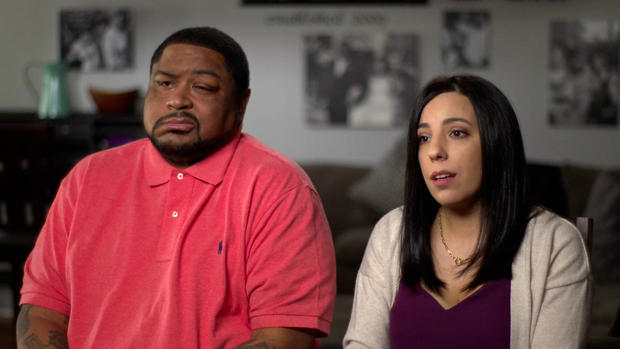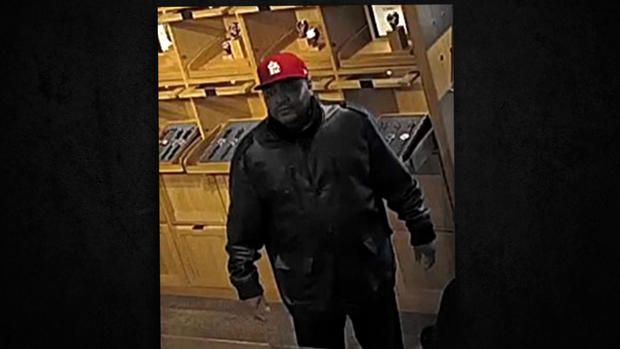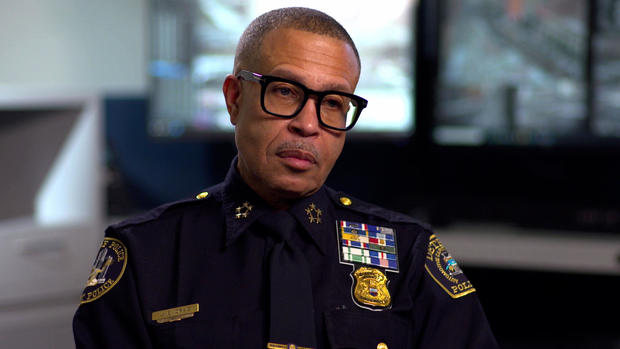There’s a lot NOT to love about facial recognition. For one – it’s not always accurate, especially for those who are not Caucasian men.
More from CBS 60 Minutes:
Police departments adopting facial recognition tech amid allegations of wrongful arrests
In the past few years, facial recognition technology has become a critical tool for law enforcement: the FBI has used it to help identify suspects who stormed the Capitol on January 6 and state and local police say it’s been instrumental in cases of robberies, assaults, and murders. Facial recognition software uses complex mathematical algorithms or instructions to compare a picture of a suspect’s face to potentially millions of others in a database. But it’s not just mugshots the software may be searching through. If you have a driver’s license, there’s a good chance your picture might have been searched, even if you’ve never committed a crime in your life.
In January 2020, Robert Williams arrived home from work to find two Detroit police officers waiting for him outside his house in the quiet suburb of Farmington Hills, Michigan.
They had a warrant for his arrest.
He’d never been in trouble with the law before and had no idea what he was being accused of.
Robert Williams: I’m like, “You can’t just show up to my house and tell me I’m under arrest.”
Robert Williams: The cop gets a piece of paper and it says, “Felony larceny,” on it. I’m like, “Bro, I didn’t steal nothin’. I’m like, “Y’all got the wrong person.”
Williams, who is 43 and now recovering from a stroke, was handcuffed in front of his wife, Melissa, and their two daughters.
Melissa Williams: We thought it was maybe a mistaken identity. Like, did someone use his name?
He was brought to this detention center and locked in a cell overnight. Police believed Williams was this man in the red hat, recorded in a Detroit store in 2018 stealing $3,800 worth of watches.
When Detroit detectives finally questioned Williams more than 12 hours after his arrest, they showed him some photos – including from the store security camera.
Robert Williams: So, he turns over the paper and he’s like, “So, that’s not you?” And I looked at it, picked it up and held it up to my face and I said, “I hope y’all don’t think all Black people look alike.” At this point, I’m upset. Like, bro, why am I even here? He’s like, “So, I guess the computer got it wrong.”
Anderson Cooper: The– police officer said, “The computer got it wrong”?
Robert Williams: Yeah, the computer got it wrong.
Williams didn’t know the computer they were referring to was a facial recognition program. Detroit police showed us how their system works. First, a photo of an unknown suspect is run against a database of hundreds of thousands of mugshots, which we’ve blurred for this demonstration.
James Craig: It’s an electronic mug book, if you will.
James Craig has been Detroit’s chief of police since 2013.
James Craig: Once we insert a photograph, a probe photo– into the software– the computer may generate 100 probables. And then they rank these photographs in order of what the computer suggests or the software suggests is the most likely suspect.
Anderson Cooper: The software ranks it in order of– of most likely suspect to least likely?
James Craig: Absolutely.
It’s then up to an analyst to compare each of those possible matches to the suspect and decide whether any of them should be investigated further.
In the Robert Williams case, Detroit police say they didn’t have an analyst on duty that day, so they asked Michigan state police to run this photo through their system which had a database of nearly 50 million faces taken from mug shots but also state IDs and driver’s licenses. This old drivers’ license photo of Robert Williams popped up. We learned it was ranked 9th among 243 possible matches. An analyst then sent it to Detroit police as an investigative lead only, not probable cause to arrest.
Anderson Cooper: What happened in the case of Robert Williams? What went wrong?
James Craig: Sloppy, sloppy investigative work.
Sloppy, Chief Craig says because the detective in Detroit did little other investigative work before getting a warrant to arrest Williams.
James Craig: The response by this administration– that detective was disciplined. And, subsequently, a commanding officer of that command has been de-appointed. But it wasn’t facial recognition that failed. What failed was a horrible investigation.
Two weeks after he was arrested, the charges against Robert Williams were dismissed.
Anderson Cooper: The police in Detroit say that the Williams case was in large part a result of sloppy detective work. Do you think that’s true?
Clare Garvie: That’s part of the story, for sure. But face recognition’s also part of the story.
Image: The Last American Vagabond
Become a Patron!
Or support us at SubscribeStar
Donate cryptocurrency HERE
Subscribe to Activist Post for truth, peace, and freedom news. Follow us on Telegram, SoMee, HIVE, Flote, Minds, MeWe, Twitter, Gab, Ruqqus and What Really Happened.
Provide, Protect and Profit from what’s coming! Get a free issue of Counter Markets today.





Be the first to comment on "CBS 60 Minutes: American Police Departments Being Sued for Wrongful Arrests Based on Facial Recognition"